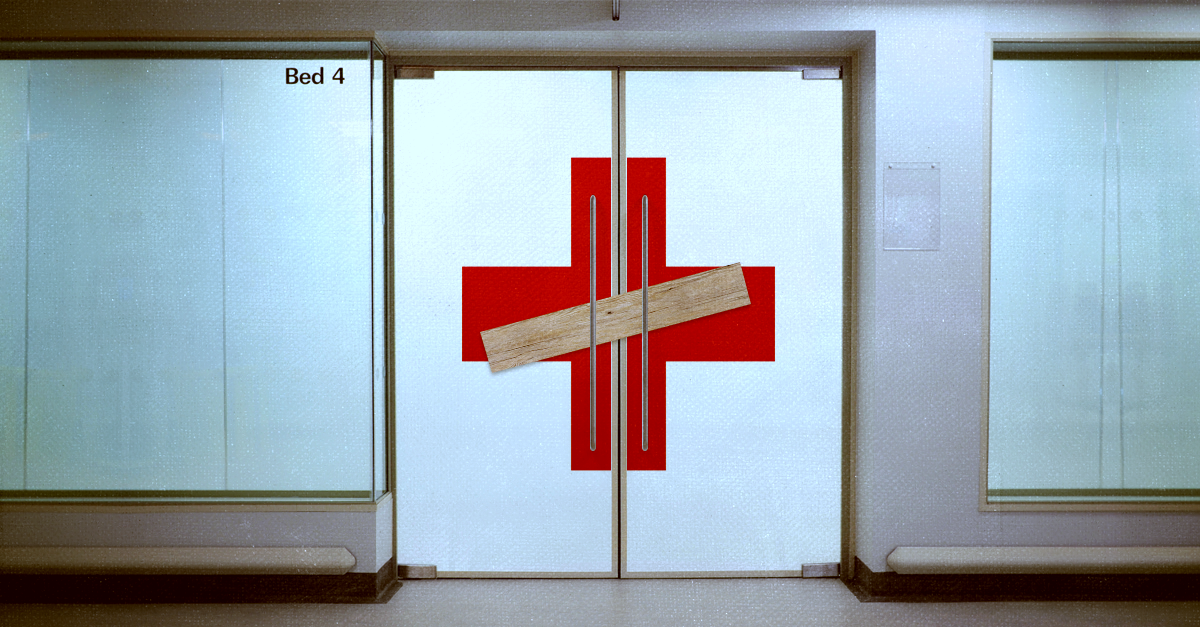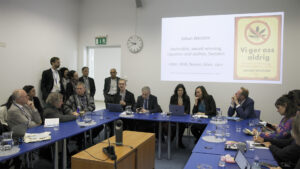Recent media uproar in connection with a new wave of poisonings from "legal highs" provides a timely opportunity to draw attention to the Polish system for helping drug-dependent people. Demand for new drugs is not only a problem of criminal law and the result of inadequate prevention measures, but also a problem of inadequate treatment, as a result of which thousands of people remain without help.
Since the autumn of last year, a draft amendment of the law relating to the substitution treatment of opioid dependence has been waiting for its time in the Ministry of Health. This project of the National Office for Drug Prevention is a response to public demand, taking into account the opinion of a number of professional individuals and organisations, including the Monar Association, Polish Drug Policy Network, and the Committee of the Warsaw Social Dialogue for Prevention, Drug Abuse and HIV / AIDS. These institutions are demanding a paradigm shift in substitution treatment, as they consider that the current model is too expensive, ineffective and should be reconstructed.
 There was an opportunity to amend the 'substitution law' this year – at the time when the new 'legal highs' were criminalised – but for reasons unknown, it didn't happen. The project is not controversial, nor is substitution treatment a political issue. Even in 2004-2005, under the administration of the then President of Poland, Mr. Lech Kaczynski, support was given for substitution treatment activities, which significantly reduced the scale of drug-related homelessness and public drug use – for example, around the railway stations in Warsaw which used to be centres of drug trafficking. This process continued under subsequent governments. Today, the demand for heroin and other opioids, together with homelessness, continue to be a problem in Warsaw, but on a completely different scale. The proposed amendment has the potential to significantly change the quality of life of many people living with addictions, and help them to enter substitution programs – something that was almost impossible a few years ago.
There was an opportunity to amend the 'substitution law' this year – at the time when the new 'legal highs' were criminalised – but for reasons unknown, it didn't happen. The project is not controversial, nor is substitution treatment a political issue. Even in 2004-2005, under the administration of the then President of Poland, Mr. Lech Kaczynski, support was given for substitution treatment activities, which significantly reduced the scale of drug-related homelessness and public drug use – for example, around the railway stations in Warsaw which used to be centres of drug trafficking. This process continued under subsequent governments. Today, the demand for heroin and other opioids, together with homelessness, continue to be a problem in Warsaw, but on a completely different scale. The proposed amendment has the potential to significantly change the quality of life of many people living with addictions, and help them to enter substitution programs – something that was almost impossible a few years ago.
First of all, the proposed amendment would allow access to certain substitute medicines on prescription; secondly, it assumes a far-reaching simplification of the rules for conducting therapy. This change opens the way for substitution treatment in psychiatric and substance-abuse clinics which already meet the basic conditions for conducting such work. Although drug-dependence treatment centres provide the ideal environment for substitution therapy, it currently exists in only about 25 locations around the country, with much of that provision taking the form of expensive and over-subscribed hospital programs. Substitution treatment is being received by just over 2,200 patients – half of them living in Warsaw. We have one of the lowest indicators of the availability of substitution treatment in the whole European Union. Lack of substitution therapy has a severe impact on the demand for new psychoactive substances – so called 'legal highs'.
It should be noted that the proposed "on prescription" formula refers to drugs with characteristics which are pharmacologically safer for the patient than the methadone used in Poland. Both substitution preparations projected for use in this treatment model are proven procedures, for example in the Nordic countries which are known for their cautious, less liberal drug policy, but also for their high standards of public health provision.
 In contrast to the proposed project, moreover, the current model of substitution does not encourage broader availability of provision: Substitution programs generate substantial costs, primarily for support staff, and are unviable with fewer than 30 patients – and because of this fact, many villages, and even whole regions where opioid drug use is less locally concentrated, are deprived of their benefit.
In contrast to the proposed project, moreover, the current model of substitution does not encourage broader availability of provision: Substitution programs generate substantial costs, primarily for support staff, and are unviable with fewer than 30 patients – and because of this fact, many villages, and even whole regions where opioid drug use is less locally concentrated, are deprived of their benefit.
The new model of substitution treatment has the potential to integrate the treatment offer, i.e. to connect pharmacotherapy with psychotherapy and other forms of assistance, including the benefits of addiction treatment clinics and social reintegration programs. This kind of integrated support is considered to be more efficient, especially for long-term, socially-marginalised patients, who have difficulty in accessing support agencies. In conclusion, it is a very important project, in terms of the optimisation of drug treatment in Poland – so further delay is incomprehensible.
Substitution treatment is not the only area demanding urgent action. The whole system of prevention and therapy is in need of reform. In the epidemiological sphere, the situation changes so quickly, that passive data collection systems are unable to keep pace with trends – something that was completely unpredicted when a mandatory National Programme for Drug Prevention was created. Demand for opiates is currently waning, while there are an increasing number of patients presenting with a diagnosis of 'mixed dependence', involving a significant component of psychostimulants and alcohol, as well as people with comorbid psychiatric disorders, especially related to the use of new substances.
In Poland, there are currently 31 substitution treatment programs in operation (24 of them in public and private health care institutions, and 7 under the aegis of 23 penitentiary institutions). In 2013, substitution therapy was received by approx. 2,200 people. Janusz Sierosławski, (“Estimated numbers of problematic opioid users”) has estimated the number of such users to be between 10,444 and 19,794, which would imply that only approx. 10-15% of addicts in this group are receiving substitution treatment. The situation in two provinces – Podkarpackie and Podlaskie – is particularly bad, with no access to substitution treatment at all. Implementation of substitution treatment programs in these two provinces is a matter of the utmost urgency. It is also recommended that treatment should be expanded in other provinces, in particular in Silesia, where access is extremely limited.
Agnieszka Sieniawska, Polish Drug Policy Network






